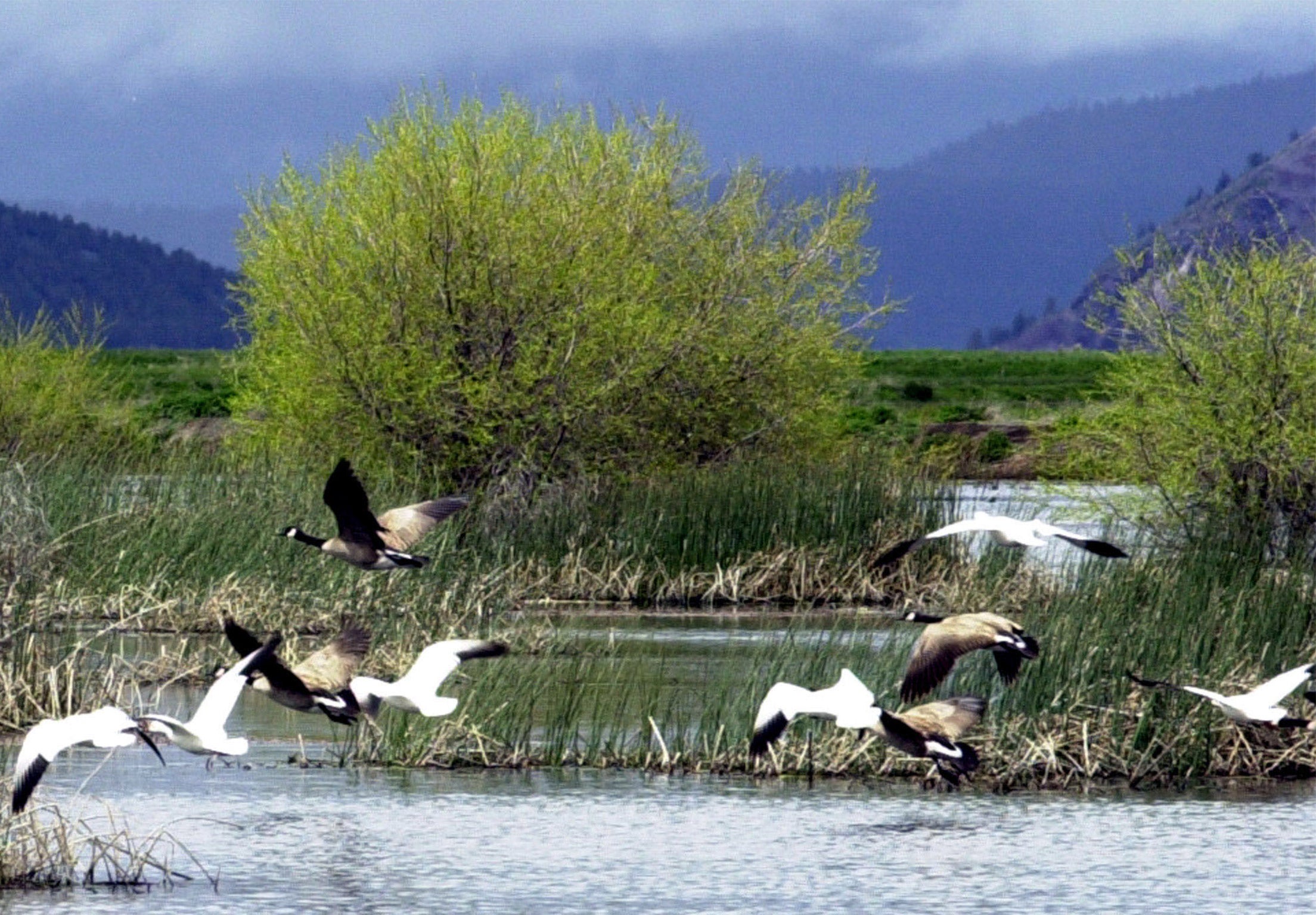'Several thousand' snow geese die after landing in toxic lake
Environment authorities are using drones to get an accurate count

Thousands of migrating snow geese have died after landing in a lake laden with toxic heavy metals and sulphuric acid.
Maintaining the lake, which has formed in an old open pit mine in Butte, Montana, is the responsibility of Montana Resources and Atlantic Richfield.
The companies participate in a Government-ordered 'hazing' scheme to scare geese with loud noises, instituted after a much smaller die-off in 1995.
Montana Resources and the Environmental Protection Agency (EPA) are using drones and aircraft to accurately count the number of dead birds, the Billings Gazette reported.
Mark Thompson, the Berkeley Pit's environmental affairs manager, said several dozen live geese are still in the pit, swimming in the toxic water, after landing on November 28.
He told AP: "I can't underscore enough how many birds were in the Butte area that night.
"Numbers beyond anything we've ever experienced in our 21 years of monitoring by several orders of magnitude."
Workers did "incredible things to save a lot of birds and they really put their heart and soul behind it," he added.
Last year about 2,000 snow geese fell out of the sky in Idaho, apparently killed by avian cholera.
The species was considered endangered in the early 20th century but recovered after hunting was banned.
More than 300 died in 1995 after drinking contaminated Berkeley Pit water and examinations showed heavy metals in their kidneys.
The thousands of geese that perished in the most recent incident had flown past their usual landing spot - called Freezeout Lake - because it was mostly frozen, the Montana Department of Fish, Wildlife and Parks told the Gazette.
Montana Resources has collected 20 birds for the department to analyse, and mine officials said they had asked federal authorities whether they expected further large migrations over the area.
The EPA could fine Montana Resources after investigating whether it was sticking to the hazing scheme.
The programme had apparently been successful in its first five years, from 1996 to 2001, with 22,000 birds observed over the Berkeley Pit but just 75 deaths.
A spokesman for Atlantic Richfield said: "Last week thousands of migratory waterfowl passed through the Butte area, with thousands landing in the Berkeley Pit.
"Under a consent decree with US EPA and the state of Montana, Montana Resources and Atlantic Richfield Co. operate a program to deter waterfowl from landing in the pit, and to encourage any waterfowl in the pit to leave as soon as possible.
"As required by this program, multiple noise-making tactics have been and are still being used to convince waterfowl to stay away from or leave the pit. The vast majority have left.
"Unfortunately, some waterfowl have remained in the pit, and we estimate that several thousand snow geese have died.
"Further work is underway to use a combination of visual observations and photos to determine the number and species of birds that did not survive.
"Our goal is to prevent such losses, and we are working closely with federal and state regulators to identify potential program improvements."
A Montana Resources spokesman said: "The number of migrating geese that passed through this area and landed in the pit is unprecedented.
"Although most geese left the pit and continued their migration, we estimate that several thousand snow geese did not leave and have not survived.
"This is a very unfortunate incident, and we are saddened and distressed to see that efforts to prevent these mortalities did not succeed.
"Montana Resources and Atlantic Richfield personnel have attempted to convince waterfowl to stay away from or leave the pit.
"Their diligence and dedication working day and night saved thousands of birds."
Join our commenting forum
Join thought-provoking conversations, follow other Independent readers and see their replies
Comments
Bookmark popover
Removed from bookmarks